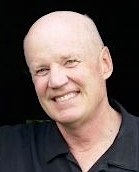
Modern industrial food and farming systems that dominate the U.S. commercial marketplace are under heavy attack in the cultural marketplace, and unless agricultural advocates make a better case for these systems' success, effects of that attack will be felt worldwide, says Robert Paarlberg, the Feb. 27 Heuermann Lecturer at the University of Nebraska-Lincoln.
Paarlberg, the Betty Freyhof Johnson '44 Professor in the Department of Political Science at Wellesley College, and author of the book "Food Politics: What Everyone Needs to Know," will speak at 3:30 p.m. in the Hardin Hall auditorium at 33rd and Holdrege.
The free Heuermann Lecture, titled "Our Culture War Over Food and Farming," is preceded by a 3 p.m. reception.
Some people "have concluded that our dominant food and farming systems are unhealthy, unsafe, environmentally unsustainable and socially unjust," Paarlberg said.
"In place of large scale, highly specialized and highly capitalized farming systems, they want a return to smaller scale systems that integrate crop and livestock production," he added. "In place of internationally traded foods they want local foods. In place of genetically engineered food they want organic food, and in place of fast food they want slow food."
At stake in this culture war, Paarlberg said, "is not just the future of food and farming in the United States, but also in the developing world."
He noted that in many of the poorest communities in Africa and Asia, farms are still small and highly diversified, few chemicals are used and GMOs are not permitted, so the food system in place there is, in reality, organic, local and slow.
"Productivity there is low," Paarlberg said. "The average income of farmers is only a bit more than a dollar a day, and one of three people is undernourished. Moving away from these non-productive systems in poor countries will be more difficult if modern farming in the United States fails to make a better case for its success."
Paarlberg's book "Starved for Science: How Biotechnology is Being Kept Out of Africa," carries a foreword by two Nobel Peace Prize winners, former U.S. President Jimmy Carter, and Norman Borlaug, often called the father of the Green Revolution.
The co-author of one book and author of eight, as well as of numerous articles for both academic and popular publications, Paarlberg also is an adjunct professor of public policy at Harvard Kennedy School, and an associate at the Harvard University Weatherhead Center for International Affairs. Most of his research and consulting is in the area of international food and agricultural policy, especially in Africa and the developing world.
"Robert Paarlberg brings an important perspective to Heuermann Lecture participants," said Ronnie Green, University of Nebraska vice president and Harlan vice chancellor of the Institute of Agriculture and Natural Resources at UNL, home of the Heuermann Lectures. "His insights into how what happens in food and agricultural systems in the U.S. affects food production, poverty and malnourishment around the world offers much food for thought in our powerhouse agricultural state."
Heuermann (pronounced Hugh-er-man) Lectures in IANR focus on providing and sustaining enough food, natural resources and renewable energy for the world's people, and on securing the sustainability of rural communities where the vital work of producing food and renewable energy occurs.
The lectures are made possible through a gift from B. Keith and Norma Heuermann of Phillips, long-time university supporters with a strong commitment to Nebraska's production agriculture, natural resources, rural areas and people.
Heuermann Lectures stream live at http://heuermannlectures.unl.edu, and are archived at that site shortly after the lecture. They're also broadcast on NET2 World at a date following the lecture.
More details at: http://go.unl.edu/87y